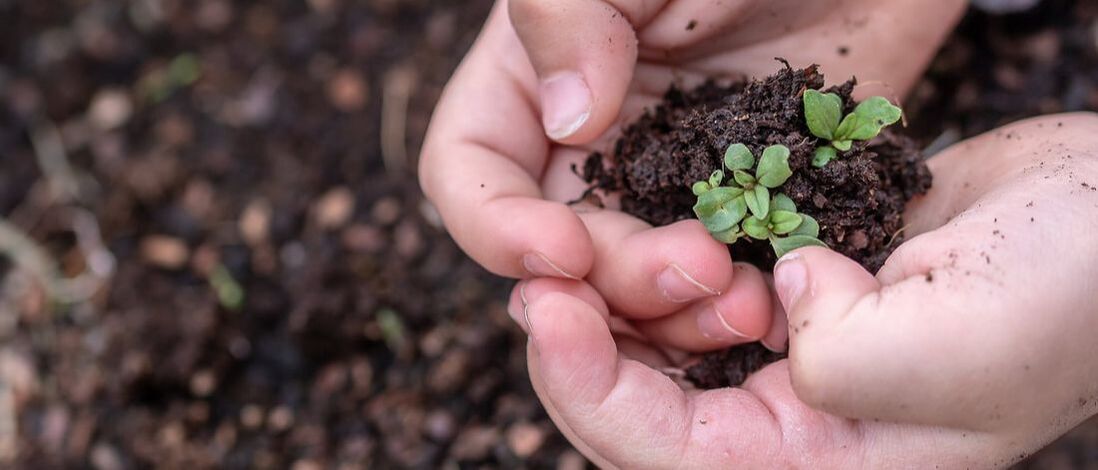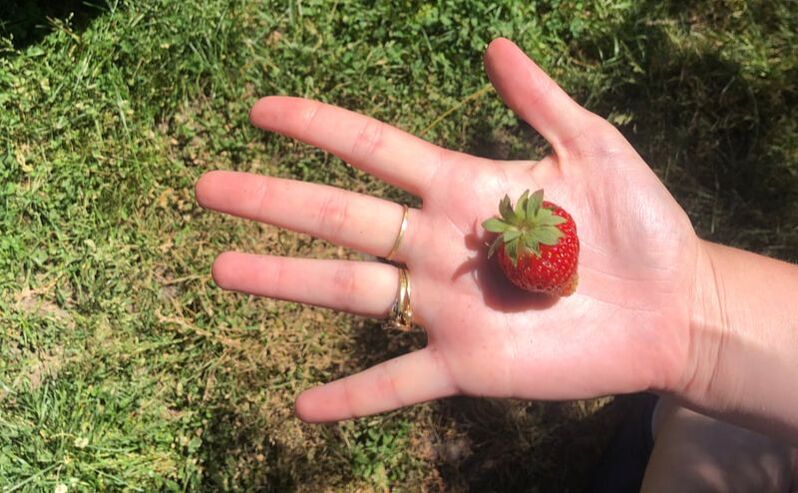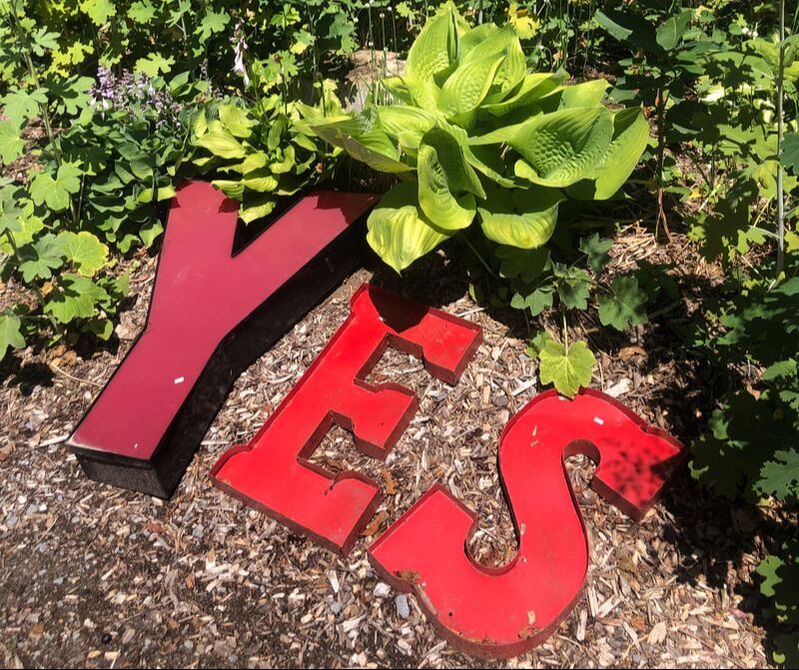|
Remixed, created by the artists behind Trophy [1], blends the materiality of receiving a gift in the mail with an app-based personal questionnaire. As “a listening party for one, performed together across time and space in a collective experience,” the artists invite interactive participation before, during, and extending beyond the scope of the time we share together at the show. The creators, Laurel Green, Sarah Conn and Allison O’Connor are experts in care, moving audiences softly through a personal playlist of stories and music while offering us tools to literally plant change and watch it grow. Nurturing change through emergent strategy is the name of the game in Remixed. Our small acts assemble the show but also re-assemble ourselves, sending us off into the world with a sense of our own potential. And a seed. When the show starts, I am invited to open a cardboard box that arrived by post a week prior. Inside the box, there is a small cardboard pot, a soil pellet, a beautiful hand crafted paper ball, and a circular piece of cream canvas mat with three painted circles on it, delineating where to place the other objects you were gifted. After placing the items on the cloth as instructed, I am then invited to fashion the cardboard box into an upright phone stand set for the performance. (Genius!) After “setting the stage” for myself, I answer a series of meaningful and personal questions. Through the interactive app, I select a graphic of a face or a visual of a heart beat to communicate how I’m feeling at the time of performance. The app asks questions about what things make me calm, the music I listened to as a kid, the music I listen to now, and my relationship to change. As I ponder my own intense relationship to systemic change in light of these questions, I meet the spinning wheel, showing me that something new is aggregating. The app then spits out a custom playlist, specifically made for me. Featuring a collection of both music and personal monologues inspired by my answers to the preceding questionnaire, this playlist is to be listened to while I move through the other instructions from the show. The first song that preceded the monologues was totally on point with my assertion earlier that I definitely listened to early 2000s pop when I was younger; Gwen Stefani’s “Hollaback Girl” blasts through my headphones. I felt seen, I felt heard, I want to dance along. The playlist was a gift, personally made for me, that put my lived experiences and memory in conversation with an emergent world beyond (See I LOVE YOU.). Listening to music from my youth while listening to stories about radical change from people I’ve never met put the personal in conversation with the political. My curated stories were mainly autobiographical stories of participation in systems change. I heard from a queer person who told the story of the first time they participated in a Pride parade. I heard from a Sri Lankan immigrant who runs programs to demystify the process of getting permanent residency in Canada. I heard from someone who runs cultural sensitivity training. I heard from an Indigenous woman who told the story of the healing ceremony that happens when a family member dies. While I listen to this playlist of songs and stories, I am told to place the soil pellet in the pot and fill it up with water. I take apart the little paper ball to find it full of seeds. Then I plant the seed in the soil. I am left with the explicit instruction to continue to nurture the plant, to keep it alive. I am challenged to carry the stories of individual and systemic change I have heard with me beyond this moment, to actively encourage visible and emergent change through the now embodied metaphor of nurturing a little sprout. The key point here is that this gift stays with me. Jenn reminds me that we don’t usually get mementos like this in bourgeois theatre. My sprout grew on my windowsill for a month after the show. Each of the stories in my personal playlist swirled around tiny individual intensely-local moments of change inside a bigger systemic movement. The stories lean into what adrienne maree brown calls emergent ways of thinking around the "the way complex systems and patterns arise out of a multiplicity of relatively simple interactions.” [2] Remixed offered me not only autobiographical stories of small participation in big change and but also an invitation to try it out myself. This kind of emergence, specifically planting the seed, is a future-oriented phenomenon. The seed proves a perfect metaphor for the fact that small acts of nurturing and care do the real work to change the world by first changing my world. The website for Remixed cites Octavia Butler to remind us that “all that you touch you change, all that you change, changes you.” We hear the stories of change, they change us, we actively bring life to something green. Although the modest scale of Remixed prevents us from accessing fully emergent pattern-making, the artists echo Augusto Boal’s rallying cry that performance can act as “rehearsal for the revolution.” [2] Remixed is an example of training for phase change, or what Jenn calls “proto-emergence.” This is how we start with just one of those simple interactions brown describes. The first in a potentially rich network of such interactions. Through planting the seed, I was acting as a vehicle for change --from the storytellers, through my hands, into the dirt, up into the sun. [1] Trophy is an award-winning interdisciplinary creative collective based in Ottawa that makes both performances and installations. Besides Remixed, they are known for their installation Trophy, a series of tents that house personal and autobiographical stories of change.
[2] adrienne maree brown, Emergent Strategy : Shaping Change, Changing Worlds. Chico: AK Press, 2017, pg 2. [3] Augusto Boal, Theatre of the Oppressed. Theatre Communications Group, 1985, pg 155.
0 Comments
Leave a Reply. |



 RSS Feed
RSS Feed
